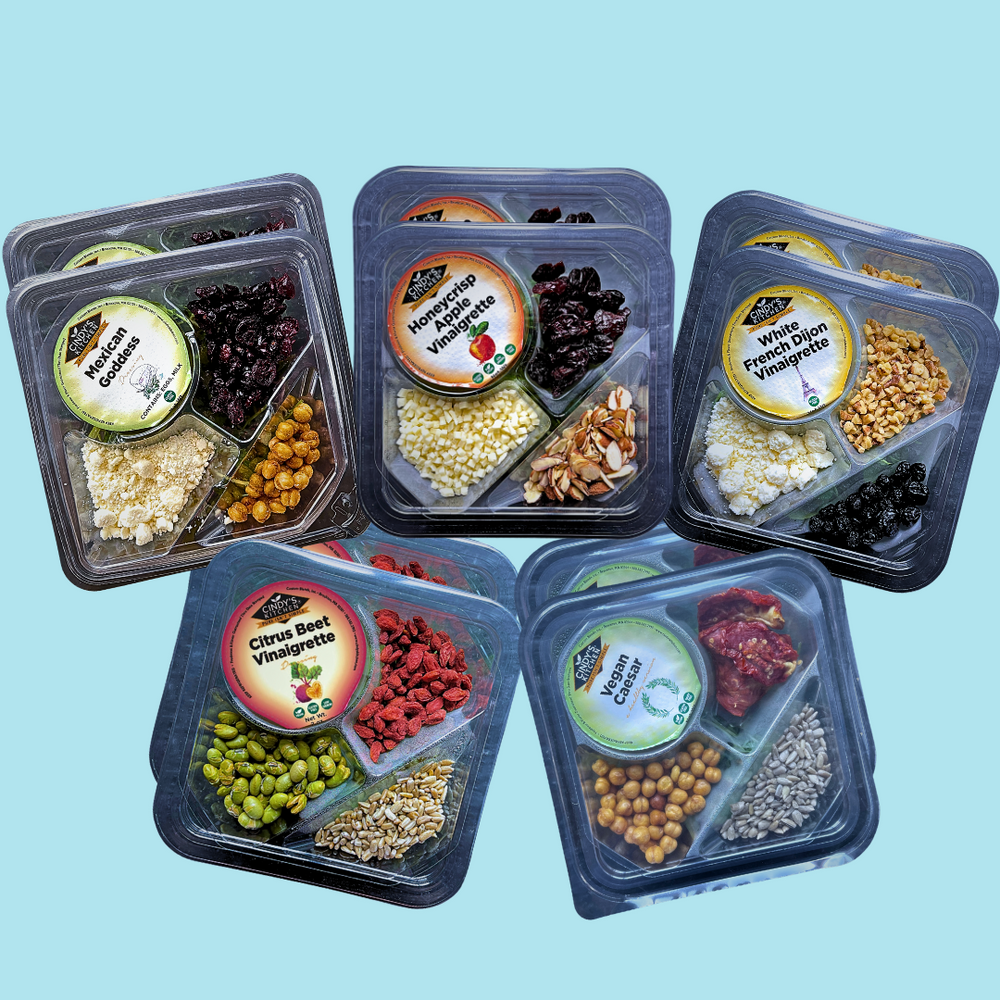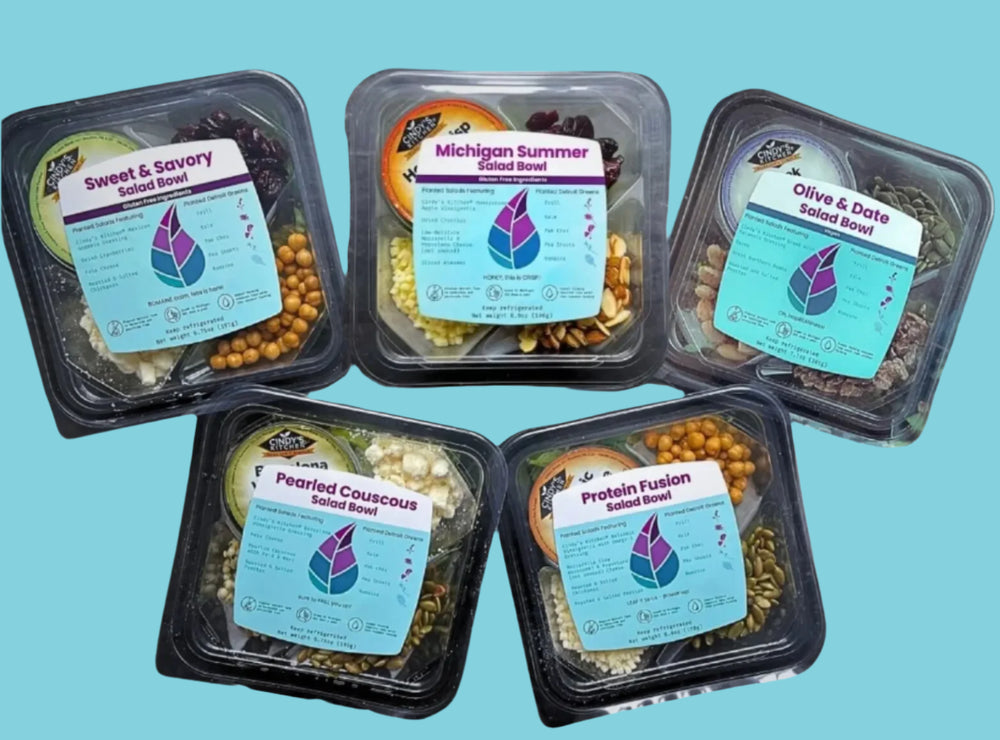
The Motor City has always been synonymous with innovation. But here's a guess: the city's latest claim to fame isn't about cars, but kale. Yep, Detroit is becoming a hub for urban farming, and at the center of this transformation in the city's landscape is hydroponic farming.
Picture this: locally grown produce thriving in a city more associated with assembly lines than lettuce leaves. It's happening, and it's delicious.
Welcome to the revolution where soil is overrated, water is MVP, and Detroit's food scene is having its biggest glow-up yet.
Let's dive in to see how hydroponic farming is reshaping not just what Detroit eats but how it thinks about food entirely.
What is Hydroponic Farming?

First things first—what is hydroponic farming? No soil? How does that even work? Hydroponics is a form of farming in which the soil is replaced with nutrient-rich water. Plants sit pretty in trays or vertical systems while their roots sip on a carefully crafted cocktail of nutrients.
The result? Faster growth, higher yields, and veggies so pristine, they'd make your grandma's garden jealous.
It's efficient, scalable, and perfectly adapted for cities like Detroit, where space has become tight and ideas endless. Compared to the more traditional cultivation of crops on the land hydroponics takes up, it's like the newer sibling: slicker, a whole lot quicker, a lot less messy.
And where regular farms either fall short or don't function well, this type of place really can—thriving indoors in an urban setup is a game-changer for food in the city.
Why Hydroponics Works for Detroit
So, into the breach, why is Detroit falling head over heels for hydroponics? Let's break it down:
Urban Density Meets Vertical Farming
Detroit is marked by vacant lots or buildings that hardly serve any purpose. These are remade through hydroponic farming into spectacular, green bursts of activity. With methods using vertical farming techniques, we are capable of stacking crops like a Jenga tower—except these towers do not fall.
Galore of Economic Opportunities
Jobs, jobs, jobs! Hydroponic farming is creating farming, technology, and logistics jobs for locals. Growing food, growing futures.
And if that wasn't enough, local businesses are cashing in partnering with urban farms—a win-win for the economy.
Battling Food Deserts
Did you know some areas of Detroit had to go through an arm and a leg just to get fresh produce? Hydroponics is stepping up to change all that. Grown right in the city, fresh food skips having to go through long supply chains, making it easier for everyone to get their greens.
Eco-Friendly to the Core
With hydroponics, it would use 90% less water, little dependence on pesticides, and extremely lower carbon footprints. It would be like an upgrade to Mother Nature, with Detroit leading the charge.
Hydroponics in Action: Planted Detroit's Role
If hydroponics is the superhero, then Planted Detroit is the cape. This local gem is redefining what it means to eat fresh in the city. Let's shine the spotlight on them for a second.
About Planted Detroit

Planted Detroit is so much more than a farm; it's a movement. Using hydroponic systems, they are capable of growing the most vibrant and most nutritious greens possible, 365 days a year.
Their greens aren't just on point—they're like sunshine on a plate: from beautiful romaine lettuce to topping your burger with fresh veggies to microgreens, they've got the goods to create magic from any meal.
Community Impact
Planted Detroit doesn't only grow food; it grows connections. In collaboration with local markets, restaurants, and schools, the goodness of hydroponics is spread far and wide.
They are also big on education, hosting workshops and outreach programs on how to eat sustainably. It's more than farming—it's a community effort.
Benefits of Hydroponic Farming for Detroit's Residents
Hydroponic farming is more than just a cool method of growing plants without soil; it's a game-changing solution with wide-ranging benefits for Detroit's residents.
Let's dig deeper into how it's making a difference:
1. Fresher, Healthier Food Choices
Detroiters deserve to have food as fresh as their morning coffee, and that is what hydroponics can deliver. Traditional farming often requires produce to travel hundreds, if not thousands, of miles before it reaches store shelves.
By the time it lands in your fridge, it's lost some of its nutrients and a lot of its flavor.
With hydroponics, your produce goes from harvest to plate in record time, locking in nutrients for your meals for vitamins, minerals, and great taste.
Ever tried biting into a salad and the lettuce was picked only hours before? It's a whole new experience in freshness that makes healthy eating irresistible.
2. Increased Access to More Affordable Fresh, Locally Sourced Produce
Fresh, healthy food doesn't have to come with a premium price tag. Hydroponics reduces transportation and middleman costs, keeping prices reasonable for Detroit's residents. In neighborhoods where fresh produce was once considered a luxury, hydroponic farming is turning it into a staple.
Not only is locally grown produce cheaper, but it is also better for the environment.
Hydroponics cuts down on supply chains, reducing the amount of carbon emissions while making high-quality food. Your wallet and Mother Earth will appreciate it.
3. Empowerment of Local Economies
Every dollar spent on hydroponic produce is a dollar put into Detroit's local economy. Hydroponic farms like Planted Detroit are generating employment opportunities ranging from highly trained engineers and farmers down to marketers and delivery drivers.
This is not just about growing food; this is growing livelihoods.
Hydroponics also encourages entrepreneurship. By equipping small business enterprises and local restaurants to partner with urban farms, Detroit creates a broad network of food providers throughout the city.
This all helps to create a positive cycle whereby success can trickle down hydroponically.
4. Creating a Healthier Community
Access to fresh, affordable food is a cornerstone of a vibrant community, and hydroponic farming is breaking barriers to make it easier for families to include fresh produce in their diets.
It only stands to reason that better nutrition will lead to better health outcomes, reducing the risk of chronic illnesses such as diabetes and heart disease.
Beyond physical health, hydroponics instills a sense of pride and ownership among the community. They learn where their food comes from, how it is grown, and how it can be grown with sustainability in mind. It is not just a method of farming; it's a way of living.
Challenges and Opportunities Ahead
Of course, with any revolution come the setbacks. In hydroponics, initial investment is high, and it does take some learning of technology.
But Detroit never steps back from a challenge. With grants, community support, and innovative minds leading the way, these challenges are being met head-on.
This potential is huge: Detroit can become the poster child for hydroponic farming in the United States and serve as an inspiration to many other cities across the country.
This isn't about feeding a city; this is about reimaging the food system for the future.

How You Can Support Hydroponic Farming in Detroit
Want to get involved? Here's how you can be part of the change:
-
Buy Local: The next time at the farmers' market, look for Planted Detroit, or better yet, order online for a taste of the difference hydroponics can make.
-
Urban Agriculture Advocate: Advocate for policies that will support sustainable farming practices and urban agriculture initiatives.
-
Learn and Share: Attend workshops, spread the word, and educate others about hydroponic farming. The more people know, the bigger the impact.
A New Era for Detroit's Food System
Detroit knows how to reinvent itself—from being the heartbeat of the automobile industry to a creative hub for art and music. Now, hydroponic farming is steering the next wave of transformation.
This is not about food alone; it's about rewriting the narrative of city living. Detroit's embracing of hydroponic farming is tackling some of the most deep-seated issues, such as food deserts and economic disparity, while at the same time positioning the city to be a national leader in sustainable agriculture. It's proof that innovation and community spirit can spark meaningful change.
More than that, it's a testament to the resilience of Detroiters. Hydroponic farming has unlocked a future in which we can grow food anywhere, reduce our environmental impact, and create opportunities for generations to come. By putting fresh, locally grown produce on the table, Planted Detroit is shaping a healthier, more sustainable lifestyle for its residents.
The best part? This is only the beginning. Detroit can catalyze a hydroponic farming revolution throughout the U.S., proof that growth can occur anywhere. The future of food has finally arrived, and Planted Detroit is pioneering it. Let's keep nurturing this movement, one leaf at a time.


